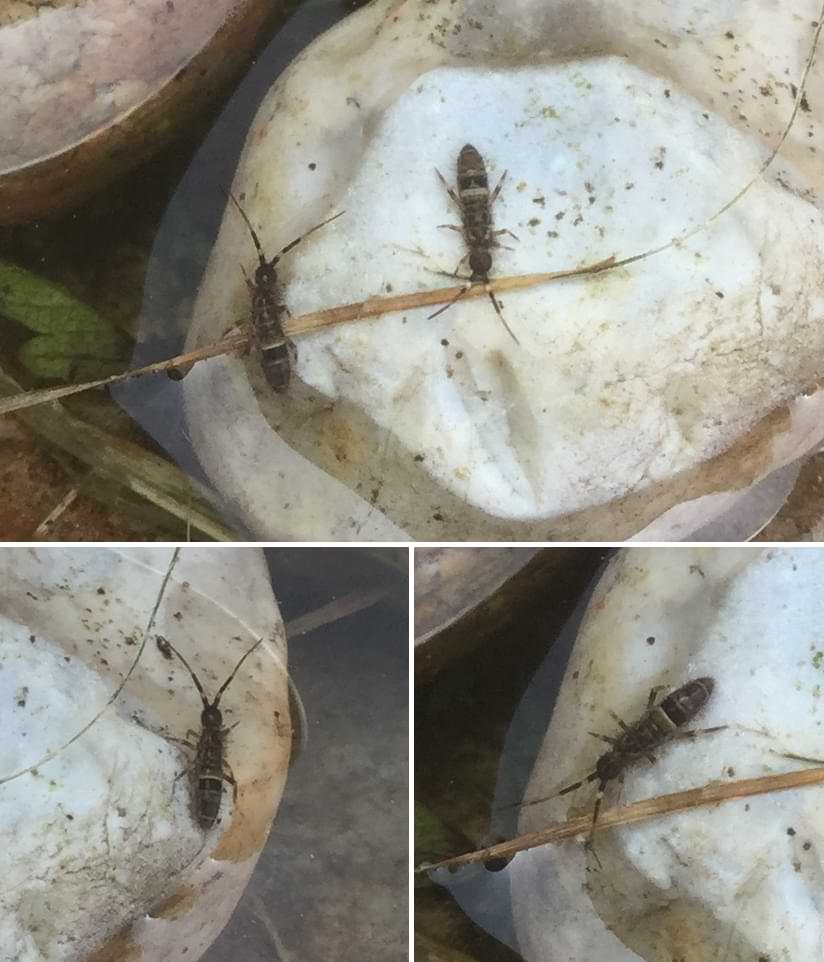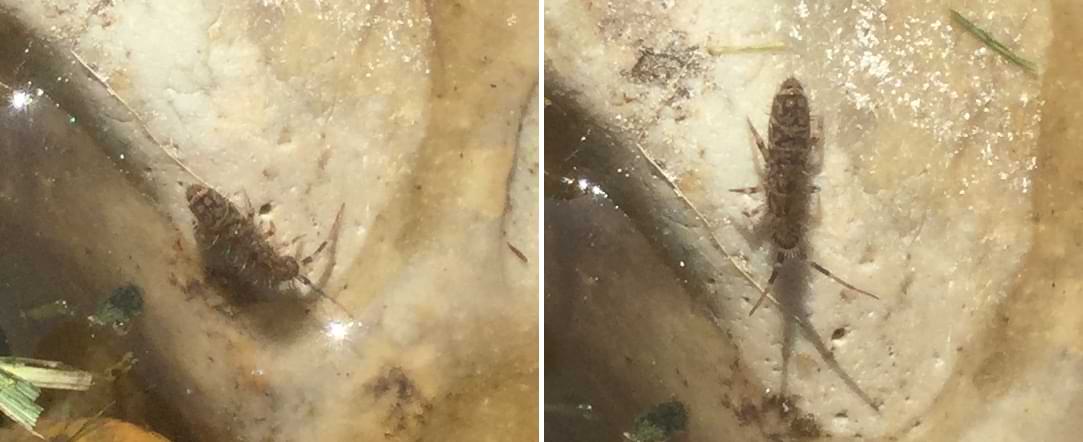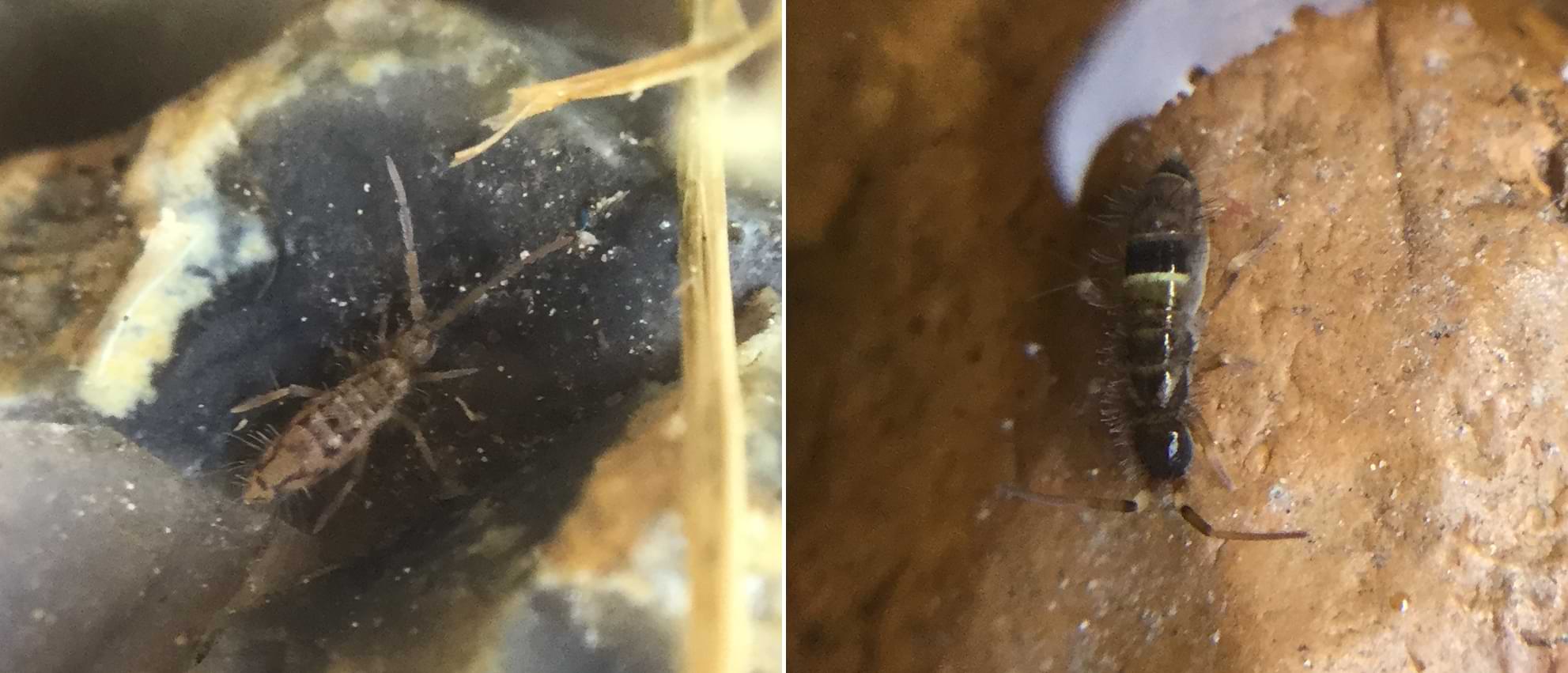Springtails!
Photos taken:
Mid to late May 2023
Occasionally when I fill up the pond area with water a large number of tiny bugs will excitedly jump out of the way and onto the surrounding rocks. I didn't know what these were for a long time — primarily due to how small they are — but after managing to get a few close up photos I realised I've been looking at springtails!
The excellent website Chaos of Delight is pretty much dedicated to them and I'd recommend you read more about them there, but basically springtails get their name from the fork-like tail under their abdomen called a furcula or sometimes furca. It contains a ton of stored energy which is released whenever they need to escape from a predator, flinging the springtail high into the air.
I gently poked a few of these to test it and they did indeed spring their tails. It's quite fun to watch, they just sorta pop out of existence the moment you touch them.
Here's a great video from Ant Lab showing springtails jumping in slow motion if you want to get a better understanding of how these creatures move.

Springtails can be found literally everywhere — in soil, leaf litter, and in bits of wood — but most species are absolutely tiny and too small to clearly see with the naked eye, let alone take pictures. Fortunately one of the most common UK species also happens to be one of the largest. The species above appears to be Orchesella cincta which can grow to the absolutely gigantic size of 4 millimetres!!
There was another species of springtail here too, this one appears to be the related but hairier Orchesella villosa.

I went out a few days later with my macro lens to see if I could get clearer photos but I only really managed to get a few useable ones. Macro photography is difficult because you ideally need a very still subject and springtails don't stop moving.
Anyway, here's the best two I got. On the right is Orchesella cincta again and on the left is what appears be a different species to the previous two. I think this species is Entomobrya nivalis but I might be wrong.

I also found this species which I can't identify. Maybe it's related to the previous ones, but the picture isn't clear enough to get a good look at it.

And finally we have what might be the smallest creature I've ever attempted to photograph, it was about the size of this full stop → .

I hope this tiny beast enjoyed eating a particle of decayed leaf.